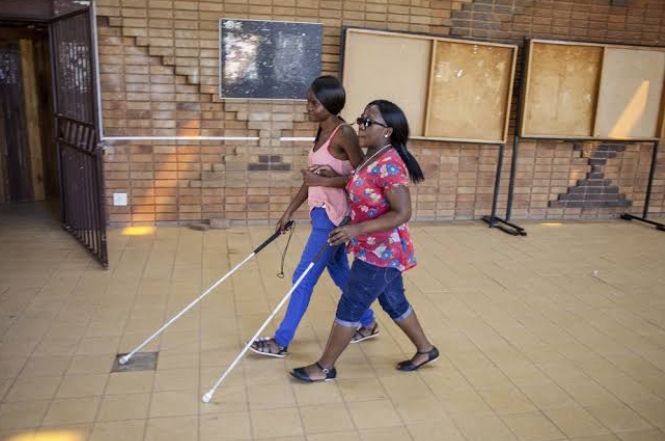“Midway through my Ph.D. studies, I received notice that I was disqualified for failing to make ‘satisfactory progress’. Despite extensive medical documentation to prove my chronic illness, in addition to confirmation from the university’s disability unit that I only required additional time, my faculty supervisors disregarded my disability and continued to shorten my deadlines.
“My department eventually expelled me for not completing my doctoral thesis within the mandated three years, even despite their past average of PhD students taking 4.7 years. After repeated appeals, I eventually gave up as the legal battle was taking too great a toll on my health. Years of intensive data analysis and writing suddenly amounted to nothing.”
This case is not unusual, but rather demonstrates a growing concern as the United Nations indicates that disabled individuals in higher education are “among the most marginalised, vulnerable and excluded groups on campus”.
The UN further estimates that 15% of the population worldwide or some one billion individuals live with one or more disabling conditions. This number is rapidly increasing.
Chronic illnesses are a growing concern for young adults as well. According to the United States Centers for Disease Control and Prevention, more than half of 18- to 34 year-olds have a chronic health condition and about a quarter have two or more chronic health issues.
What Is A Chronic Disease?
Chronic disease is broadly defined as conditions that last one year or more and require ongoing medical attention or limit activities of daily living or both. These include heart disease, cancer and diabetes and also lupus, fibromyalgia, Crohn’s disease and other autoimmune diseases, also known as ‘invisible diseases’.
Non-diagnosable diseases are also prevalent, making it especially difficult for individuals with chronic conditions to be recognised and treated. Long-term post-COVID conditions, also known as long COVID, are now among the growing list of chronic diseases.
Rights Of Disabled Employees And Students
The UN’s Convention on the Rights of Persons with Disabilities (CRPD), with over two-thirds of the world’s countries as signatories, demonstrated a global recognition of the pressing need to prohibit discrimination in hiring on the basis of disability.
Yet accommodating disabled employees is a federal requirement in only half of the world’s countries and only 27% of constitutions explicitly guarantee equality or non-discrimination on the basis of disability.
Laws guaranteeing inclusive education are less common in the Middle East and North Africa (37%), compared to Europe and Central Asia (94%). Although chronic illness is especially unrecognised, a review of employment disability discrimination charges revealed that the most commonly cited conditions were invisible ones.
Challenges For The Chronically Ill
Beyond the disability itself, the added challenge for those with ‘invisible diseases’ or ‘hidden disabilities’ is that they usually carry the burden of proof.
The vast majority of people who live with a severe disability do not use assistive equipment and, because their disability may not be visible, many struggle with the binary conception that they may not be ‘disabled enough’. In university settings, they typically must not only disclose their disability, but oftentimes, educate staff as well.
These explanations may be met with scepticism, even within the broader disability community. Chronically ill individuals risk being unjustly characterised as being lazy, too demanding or untruthful, thereby adding further stereotypical obstacles to overcome. For such reasons, many opt not to disclose their illness due to fears surrounding stigma and being further marginalised.
Academic Ableism
Universities, by nature, are systemically designed to exclude, despite having values and missions that state otherwise. Academic ableism is one such example, with universities and their systems demanding that students be of ‘able’ body and mind, and ultimately excluding disabled students.
Thus, value statements that are inclusive of disability are merely performative when competing metrics and policies counter accommodation provisions. Limited time to degree, timed examinations or other policies attached to educational duration can often work against chronically ill students.
Such sweeping approaches not only dehumanise the educational process but also shut out this growing population of students. Worse, claims to espouse a commitment to supporting disabled students, but later failing to uphold this value in practice can leave students with years of wasted time and substantial debt for ‘failing’ to complete their studies.
Ableist Whitewashing
Given the diverse needs of chronically ill people, accommodations from professors and staff are required. When institutions treat accommodation requests as a burden over a human right, it becomes more convenient to dismiss, fail or penalise the individual than to support their needs.
Rather than addressing the required steps or costs associated with accommodating disabilities, ableist whitewashing can occur. Disabled employees and students who fail to meet the threshold standard for non-disabled people may be dismissed for other official reason(s) than the disability itself, as exemplified in the case above.
This behaviour masks and legitimises ableist discriminatory practices and ultimately raises significant ethical concerns.
This is how universities should proactively support their growing and diverse disabled populations, including those who are chronically ill:
• Effective university policies: An institution might claim to support visibly disabled people while simultaneously failing to recognise and support those whose disability is not visible. Reasonable accommodations must include not just physical access but also varied approaches to learning, recognising that limited time and fixed timelines are among the biggest barriers for chronically ill students.
Examples include allowing for academic accommodations and flexibility, including the flexibility to attend to physical care, such as medical appointments and treatment.
Policies must also recognise that, especially among chronically ill students, their situations and schedules can be unpredictable. Policies addressing attendance, absences and asynchronous participation should be reviewed and updated. Otherwise, non-performative statements can ultimately cause more harm by promising educational environments that are unprepared to accommodate the needs of chronically ill students.
•Universal design, removing barriers: Moving beyond individualised accommodations, universal design refers to an environment and products that can be accessed and used to the greatest extent possible by all people. By proactively removing barriers to accessing academic environments, events and programmes, universal design increases university inclusion and participation while minimising the need for accommodations.
The responsibility for inclusiveness, then, is on the institution rather than on the student. For disabled students, this approach significantly reduces the pressure on students to disclose, while also minimising exposure to potential stigma and discrimination.
• Educating faculty and instructors: Among the most common barriers to supporting disabled students are the attitudes and knowledge among faculty.
Students with invisible disabilities have reported that faculty members are neither informed nor prepared to support them, while also being held unaccountable for any discrimination. Thus, university faculty must be educated on chronic illness and disability to support this growing demographic. Conscious and unconscious bias training should be mandated, and flexibility in attendance and assessment methods should be strongly advised.
In conclusion, the need to recognise and address invisible disabilities is growing, especially as those with long COVID are now among the millions living with invisible disabilities. As universities seek to educate increasingly diverse populations, any commitment towards inclusiveness must include and adapt to the needs of chronically ill students, without penalty.
By increasing knowledge surrounding invisible disabilities and specifically chronic illness, we hope to create space for the necessary conversations to begin the process of dismantling the systemic ableism that universities perpetuate.
Ola Lundemo is an assistant professor of practice in the School of Natural Resources and the Environment at the University of Arizona, United States. Whitney C Mohr is an assistant professor of practice in the Center for the Study of Higher Education at the University of Arizona. Jenny J Lee is a professor in the Center for the Study of Higher Education at the University of Arizona, United States.
2023 University World News














